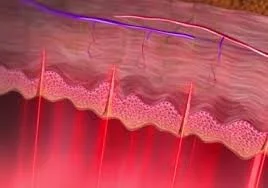Vaginal Cancer
Overview
Vaginal cancer is malignant tissue growth arising in the vagina.

Epidemiology
- It is rare, representing less than 3% of all genital cancers.
- This type of cancer usually occurs in women over age 50.
- Vaginal cancer can be effectively treated, and when found early it is often curable.
- The aetiology of vaginal cancer has not been identified.
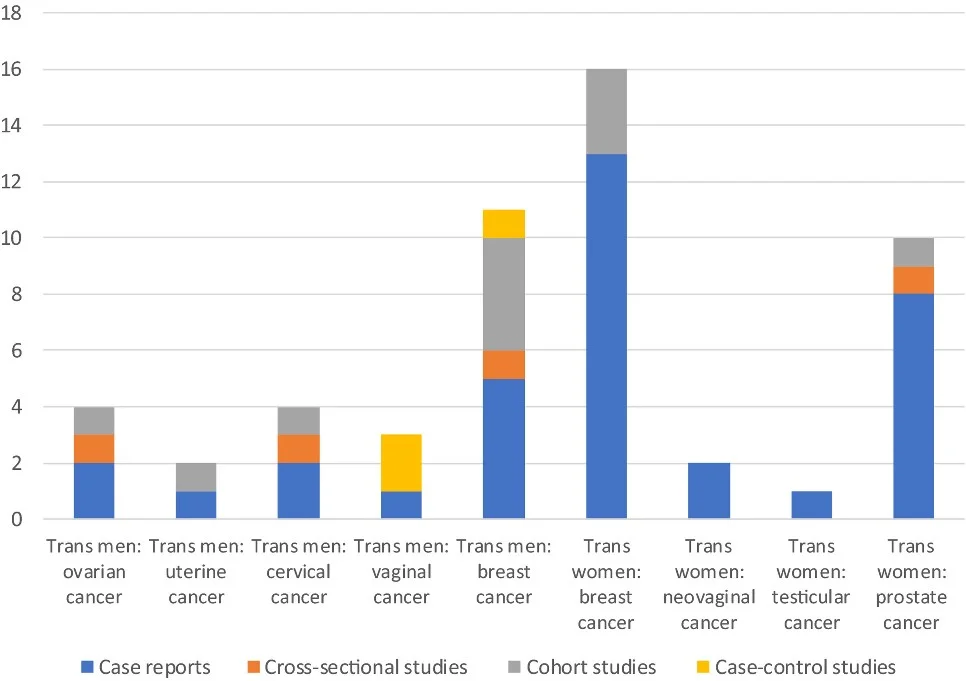
Pathophysiology
- Malignant diseases of the vagina are either primary vaginal cancers or metastatic forms from adjacent or distant organs.
- About 80% of vaginal cancers are metastatic, primarily from the cervix and endometrium.
- Cancers from distant sites that metastasize to the vagina through the blood or lymphatic system are typically from the colon, kidneys, skin (melanoma), or breast.
- Tumours in the vagina commonly occur on the posterior wall and spread to the cervix or vulva
- Squamous cell carcinomas that begin in the epithelial lining of the vagina account for about 85% of vaginal cancers occur in women( 50 yrs and up).
- The remaining 15% are adenocarcinomas, occur in teenagers and young women[14 –20 yrs. ]
- Vagina cancer develop slowly over a period of years, commonly in the upper third of the vagina.
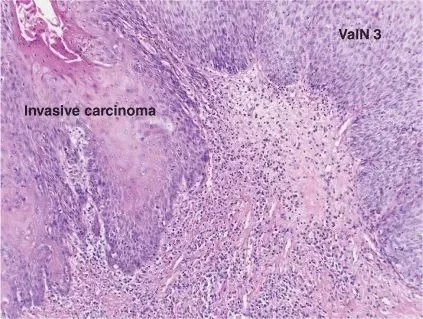
Vagina Cancer Staging
- Stage 1: Confined to Vaginal Wall
- Stage 2: Sub vaginal tissue but not to pelvic sidewall
- Stage 3: Extended to pelvic sidewall
- Stage 4: Bowel or Bladder
- Stage 5: Distant metastasis
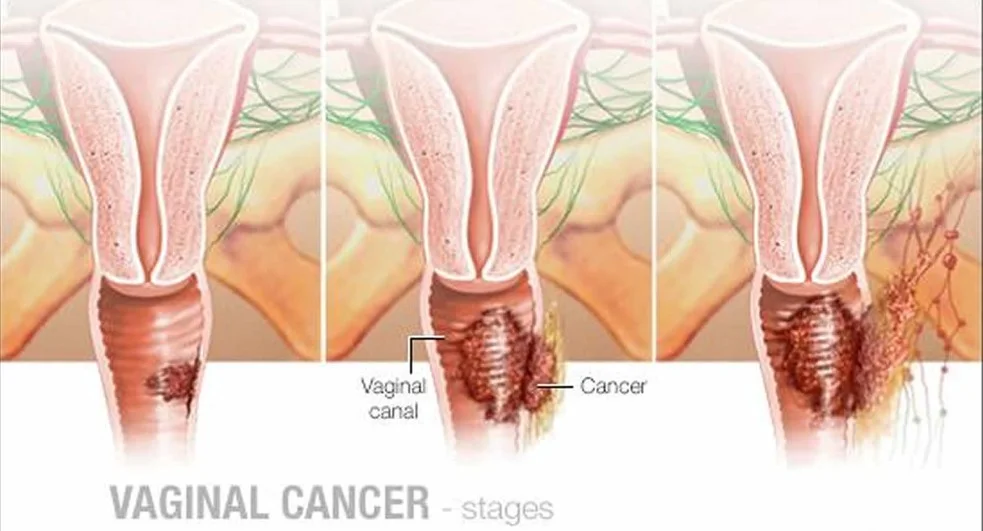
Causes & Risk Factors
- Cause is unknown
- Advancing age (over 50 years old)
- Previous pelvic radiation
- Vaginal trauma
- History of genital warts (HPV infection)
- HIV infection
- Cervical cancer
- Chronic vaginal discharge
- Smoking
Symptoms
- Painless vaginal bleeding.
- Abnormal vaginal discharge
- Dyspareunia
- Dysuria
- Swelling in the legs (oedema)
- Constipation
- pelvic pain

Assessment
- History.
- Physical examination.
- Investigation:
- Biopsy to look for either precancerous or cancerous cells.
- Scans and x-rays to see if the cancer has spread to other parts of your body.
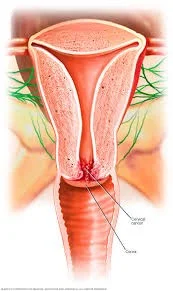
Treatment
- Treatment of vaginal cancer depends on the type of cells involved and the stage of the disease.
- If the cancer is localized, radiation, laser surgery, or both may be used.
- If the cancer has spread, radical surgery might be needed, such as a hysterectomy, or removal of the upper vagina with dissection of the pelvic nodes in addition to radiation therapy.

